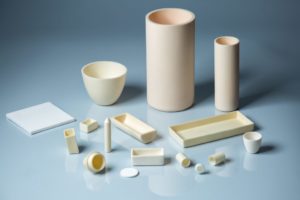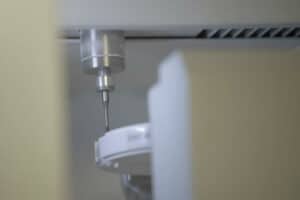CNC Milling of Ceramic
In the CNC milling process for ceramics, a machine guided by computer commands employs a spinning cutting tool to shape a ceramic piece by removing material. This technique skillfully carves out the required form or design.
A primary benefit of utilizing CNC milling in ceramic production is the capacity to craft intricate shapes with remarkable accuracy. The precision of the computer-controlled machine ensures consistent and accurate cuts as outlined in the design specifications. Additionally, CNC milling is capable of yielding parts with a smooth surface finish, thereby reducing or eliminating the need for extra polishing or finishing procedures.
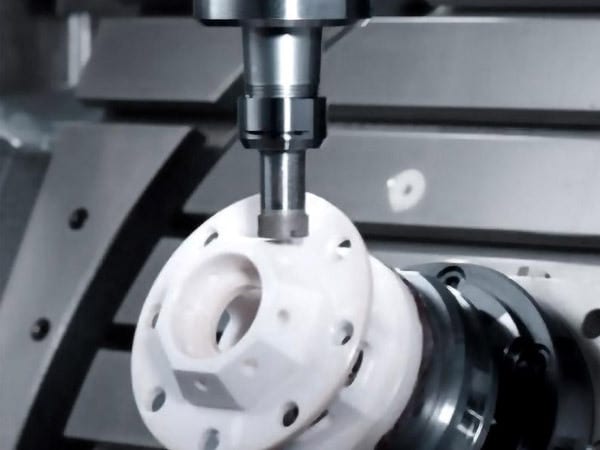
Advantages of CNC Machining in Ceramics
There are several methods to shape ceramics, like waterjet cutting, laser cutting, and kiln processing. However, CNC machining is especially beneficial for making ceramic components.
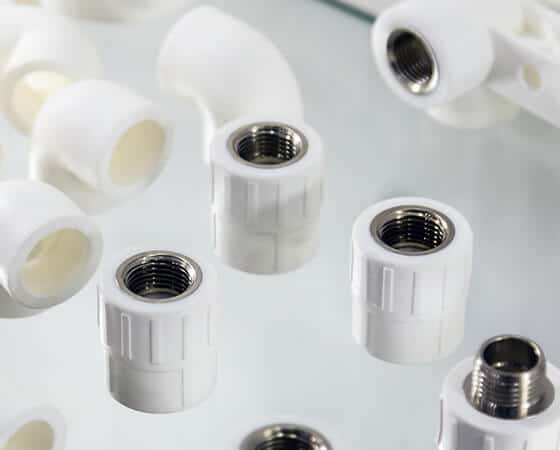
CNC machining is incredibly precise, perfect for making complex and detailed ceramic parts. It uses advanced machinery and software for excellent control over the cutting and shaping, resulting in high-quality, accurate components that meet strict standards.
CNC machining can easily adjust to the demand for ceramic parts, increasing or decreasing production as needed. This flexibility helps reduce material waste by making products based on current demand.
CNC machining is known for its ability to achieve very precise tolerances, crucial for many applications.
CNC machining is more affordable than other methods such as laser and waterjet cutting. It's more efficient, with fewer mistakes and a faster production rate, leading to lower overall costs.
CNC machining can create intricate shapes in ceramics that might be hard or impossible with other methods.
CNC machining provides outstanding control and accuracy, which is especially important for ceramics due to their hardness and fragility.
Challenges in Ceramic CNC Machining
1. Brittleness of Ceramics
Ceramics are hard but can easily break or crack, particularly when sudden forces or vibrations are applied, or if there are flaws in the machining process. This brittleness can lead to more waste, higher costs, and production delays.
2. Challenges with Complex Designs
Creating complex designs in ceramic CNC machining is difficult due to the material's hardness. Such designs often require smaller tools or very precise techniques, making it hard to maintain the design's fine details without damaging the ceramic.
3. Wear and Tear of Tools
The tools used in the CNC machining of ceramics wear out quickly. Ceramics are hard and abrasive, which rapidly wears down the cutting tools. This leads to increased costs, less precise and lower quality final products, and more waste material.
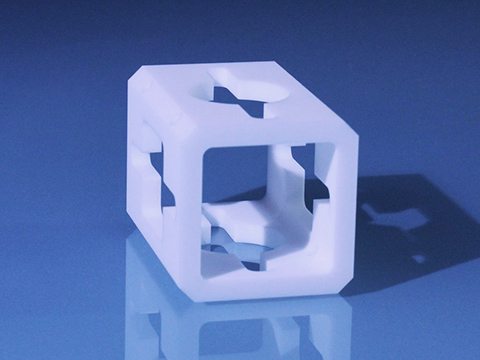
Suitable Ceramic Materials for CNC Machining
Alumina Ceramic
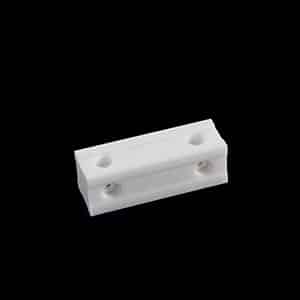 Alumina ceramic, also known as aluminum oxide, is a popular material praised for its high hardness, durability, electrical insulation, and resistance to heat and corrosion. Its hardness makes it perfect for cutting tools, and its heat resistance and electrical insulation properties make it suitable for applications involving high temperatures and electricity.
Alumina ceramic, also known as aluminum oxide, is a popular material praised for its high hardness, durability, electrical insulation, and resistance to heat and corrosion. Its hardness makes it perfect for cutting tools, and its heat resistance and electrical insulation properties make it suitable for applications involving high temperatures and electricity.
It is widely used in CNC machining to create precise components for industries like aerospace, automotive, electronics, and medical devices.
Mica Ceramic
Mica ceramic, also known as Mycalex, is a highly machinable ceramic available in four grades, each with different temperature capabilities. It is ideal for making complex, small components due to its excellent machinability, moisture resistance, high-temperature stability, and dielectric strength.
Its adaptability to various CNC machining processes like turning, drilling, milling, and grinding makes it a favored choice in aerospace, defense, cryogenics, communication, and electronics industries. Mycalex is particularly suited for producing high-vacuum parts, including IC test sockets, arc chutes, and equipment used in gas chromatography and mass spectrometry.
Zirconia Ceramic
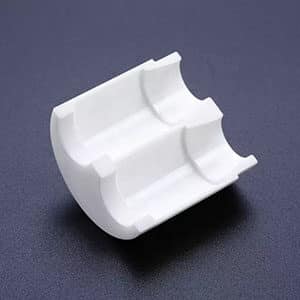 Zirconia ceramic, or zirconium dioxide, is a high-quality ceramic recognized for its great strength, toughness, and resistance to chemicals and corrosion, which makes it perfect for medical and dental uses. CNC machining is the preferred method for fabricating zirconia because of its mechanical strength at room temperature.
Zirconia ceramic, or zirconium dioxide, is a high-quality ceramic recognized for its great strength, toughness, and resistance to chemicals and corrosion, which makes it perfect for medical and dental uses. CNC machining is the preferred method for fabricating zirconia because of its mechanical strength at room temperature.
It is widely used in structural components such as ball valves, fiber optic pins, and watch cases, and its thermal properties also make it suitable for functional parts like induction heating tubes and heating elements.
Quartz Ceramic
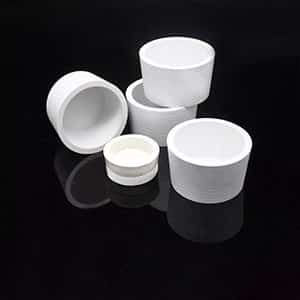 Quartz ceramic, primarily made of silica, is valued for its outstanding optical, chemical properties, high strength, thermal stability, and insulation, making it ideal for the lighting and semiconductor industries. Suitable for precision parts requiring contamination control and temperature resistance, quartz ceramic is a good match for CNC machining.
Quartz ceramic, primarily made of silica, is valued for its outstanding optical, chemical properties, high strength, thermal stability, and insulation, making it ideal for the lighting and semiconductor industries. Suitable for precision parts requiring contamination control and temperature resistance, quartz ceramic is a good match for CNC machining.
Its applications range from rocketry components such as missile nose cones and engine nozzles to space technology parts like connectors, pipes, and heat protection equipment.
Mullite Ceramic
Mullite ceramics, known for their stability at high temperatures, resistance to thermal shock, low thermal expansion, and strong mechanical properties, are perfect for demanding high-temperature applications such as furnace linings, heating elements, and kiln parts. In CNC machining, they are chosen for creating precise, complex parts that can endure tough conditions like laser cutting, milling, and drilling.
However, machining mullite ceramics is challenging due to their hardness, low thermal conductivity, and brittleness, necessitating specialized tools, cooling systems, and careful handling to prevent cracking and ensure a smooth finish.
Our Tolerance Capabilities in Ceramic Machining
The achievable tolerances for technical ceramic parts can be optimized based on their size, shape, and geometry. At Runsom Precision, our commitment lies in producing only the highest quality components that not only meet but often surpass our customers' requirements. To ensure that our products consistently meet these standards, we employ a high-performance CNC Coordinate Measuring Machine (CMM) and maintain complete traceability of all our parts.
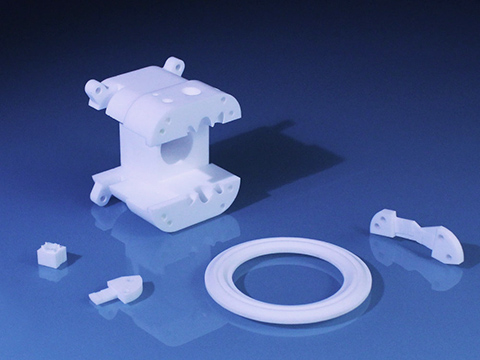
- In Grinding, we generally maintain tolerances of ±.02mm, but can achieve finer tolerances of ±.01mm, coupled with a surface finish of N2/N3.
- For Turning, our general tolerance is ±.03mm, which can be refined to ±.01mm, achieving a surface finish of N4/N5.
- In Milling, we work with a general tolerance of ±.03mm, capable of reaching a precision of ±.01mm, with a surface finish of N4/N5.
- Our CNC Milling equipment features a bed capacity of 1000mm in the X-axis and 510mm in the Y-axis.
- The spindle speed on our CNC Milling machines reaches up to 12,000 rpm.
- Our CNC Milling and turning machines are all outfitted with synchronized rigid tapping for immaculate internal threads.
- The CNC Turning process can handle materials up to 250mm in diameter, equipped with power tooling capabilities.
Considerations for Designing Ceramics for CNC Machining
Ceramics are valued for their strength, durability, and adaptability, which is why they are used in many applications. However, when working with ceramics, designers must consider certain factors before starting the machining process.
Prototyping is an essential step in manufacturing, especially for ceramic parts with intricate designs. By creating a prototype, you can conduct extensive tests and assessments before moving to large-scale production. This stage is crucial for refining the design and making adjustments based on how the prototype performs.
Further advice for successful ceramic design includes:
- Employ a modular approach in your design.
- Avoid clear sharp and elongated edges.
- Favor circular designs over oval shapes.
- Be mindful that sharp edges and corners can heighten the likelihood of breakage.
- Consider using corner pockets as a viable alternative to sharp corners, especially if avoiding rounded edges.
- In designs incorporating holes and slots, ensure they are adequately spaced to avoid crowding.
- Opt for simpler wall designs and shapes rather than complex ones.
- Avoid abrupt transitions in cross-sectional areas.
- Transform tensile stress into compressive stress, enhancing the ceramic material’s capacity to endure stress without cracking.
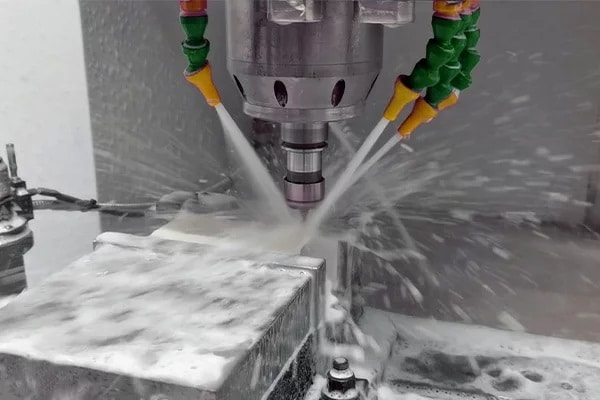
Applications of CNC Machined Ceramic Parts
CNC ceramic machining is widely used in many industries, from creating everyday household products to producing large decorative items. Its most significant applications are in the electronics, medical, and automotive fields.
Medical
CNC machining of ceramics plays a significant role in the medical field. Their durability, suitability for the human body, and resistance to corrosion of ceramics make them ideal for medical implants. The ability of ceramics to be precisely machined into complex shapes is essential for creating custom implants, ensuring tailored and accurate medical treatments for individual patients.
In dental care, ceramics are often used to make crowns, bridges, and implants using CNC machining, with zirconia being a particularly favored material for high-quality dental implants.
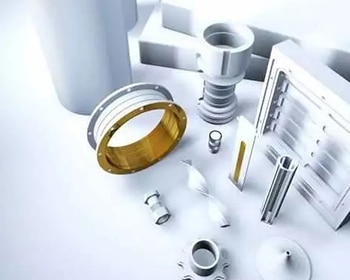
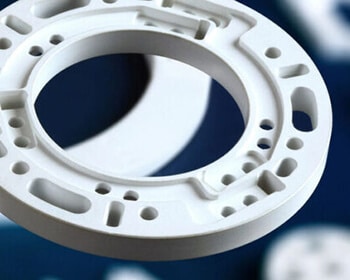
Electronic
CNC machining of ceramics is highly valued in the electronic and electrical industries for making parts with excellent dielectric properties, durability, and resistance to heat and wear. The ability of ceramics to withstand extreme temperatures makes them ideal for components in challenging environments.
A range of parts in these sectors, including heat sinks for circuit boards, vacuum interrupters, substrates, insulators, and microwave components, are made using CNC machined ceramics. Materials like macor, quartz, and aluminum nitride are frequently used in semiconductor manufacturing because of their favorable characteristics.
Automotive
The automotive industry frequently uses CNC machined ceramics, especially for brake components. Ceramic brake pads, known for their high resistance to wear, last longer than traditional pads. They are also excellent at dispersing heat during braking, improving performance and safety.
Besides brake components, CNC ceramics are used for making spark plugs, valves, gears, and engine blocks, with materials like aluminum nitride or boron nitride often chosen for these applications.
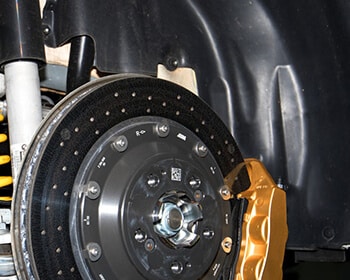
Custom Ceramic CNC Machining Service at Runsom Precision
For many years, Runsom Precision has specialized in precisely fabricating and machining advanced ceramic materials and composites. Our high-quality ceramic products have helped customers enhance the performance of their systems. With over a decade of experience as a trusted CNC machining manufacturer, we are equipped to develop material solutions that meet and surpass your requirements.
We handle a variety of advanced ceramic materials, beginning each project by thoroughly analyzing your specific needs to help choose the right material. This detailed approach ensures the success of your project from the outset.
Our machining and inspection processes are continually refined to guarantee top-quality results. We adhere to strict processing standards to deliver superior ceramics to our clients. Whether it's a prototype or full production, we are ready to assist in developing effective solutions. Start your ceramic CNC machining project with an instant quote today!

